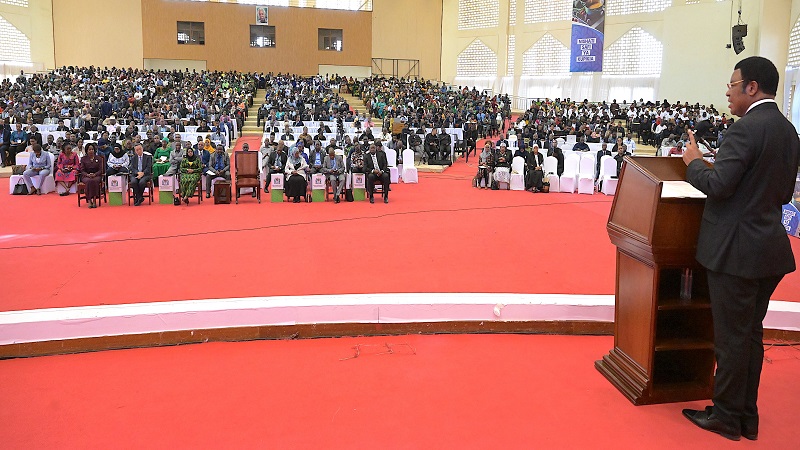Role of ICT in stimulating social and economic growth

Globally, the adoption of ICT solutions has improved economic conditions, societal norms, individual situations, and individual and organisational effectiveness. Organisations and people can increase performance, productivity, and flexibility in the delivery of services by utilizing ICT solutions.
Rapid advancements and changes in information and communication technology (ICT) have an impact on the infrastructure, services, and solutions that are related to it. The need for individuals, commercial, and governmental organisations to embrace ICT growth has grown as a result of its advancement in order to enhance productivity and improve efficiency in their businesses and services.
Given the significance of information technology services for both consumers and businesses, new technologies lead to an increase in the sophistication of cyberattacks since they present new threats and exploits. Cybersecurity is a major concern for companies of all sizes due to the rising trend of cybercrime.
The use of new-sophisticated ICT facilities and solution for individuals and organisations require the best understand of information security implementation techniques otherwise organisations and individuals are put at risk of reputation, customer trust and economic loss.
Research has indicated a dramatic increase in cyber security attacks against individuals and organisations worldwide in recent years. Attackers use sensitive data that can be compromised from people, employees' devices, or an organisation's information infrastructure. This data can be used to seriously hurt organisations and the stakeholders they serve.
In order to ensure that their information assets are adequately protected against cyber security risks, individuals and organisations are encouraged to take the appropriate steps to handle information security. Additionally, they must be prepared on a regular basis.
Information is a vital resource that must be protected in every organisation and by every individual by taking into account the best information security components, including availability, confidentiality, and integrity. Organisations and individuals employ many technological strategies, including as multifactor authentication, firewalls, anti-spam software, and password management, to safeguard their information. Nevertheless, these methods by themselves are insufficient to put information security control in place. Information security challenges cannot be addressed by security defensive technologies alone; additional security aspects, such as the impact of organisational, technological, and human variables, must be taken into account.
Furthermore, the entire organisation bears responsibility for safeguarding its information assets, not only information technology or security personnel. Because hackers are always looking for new ways to exploit information technology systems, both individuals and organisations need to continuously upgrade their information security procedures. The greatest techniques are required by both individuals and organisations to reduce risks, weaknesses, and threats to information security of the information assets.
What actions should the nation take to ensuring online safety?
The importance of the Internet in daily life cannot be disputed. Nearly every individual and organisation depend on ICT and network solutions. Systems and ICT devices must therefore be safeguarded and secured. The task of integrating information security into daily operations faces both individuals and organisations. Because information is always being transferred from one location to another, information security has become a vital aspect of our daily lives.
Firstly, information security should be implemented with consideration for the role that human behavior plays in it. Organisations and individuals should concentrate on user behavior, viewing it as a success or failure based on what employees or individuals do or do not do in terms of information security.
Last but not least, since more people and organisations are using ICT to boost output, effectiveness, and efficiency in the provision of services, information security must be strengthened on a national level. In order to tackle the nationwide cybersecurity issue, we must plan cybersecurity awareness campaigns that educate the public, educators, business community, and government officials about potential risks they may face online and their respective roles in fostering a safer cyberspace.
This program will foster the idea that cybersecurity is "a shared responsibility" and enable individuals and organisations to adopt safer and more secure online habits, thereby contributing to a greater national awareness of cyber risks.
Ibrahim Sultan is Cyber Security Consultant. He can be reached through email address: [email protected]
Top Headlines
© 2024 IPPMEDIA.COM. ALL RIGHTS RESERVED

























